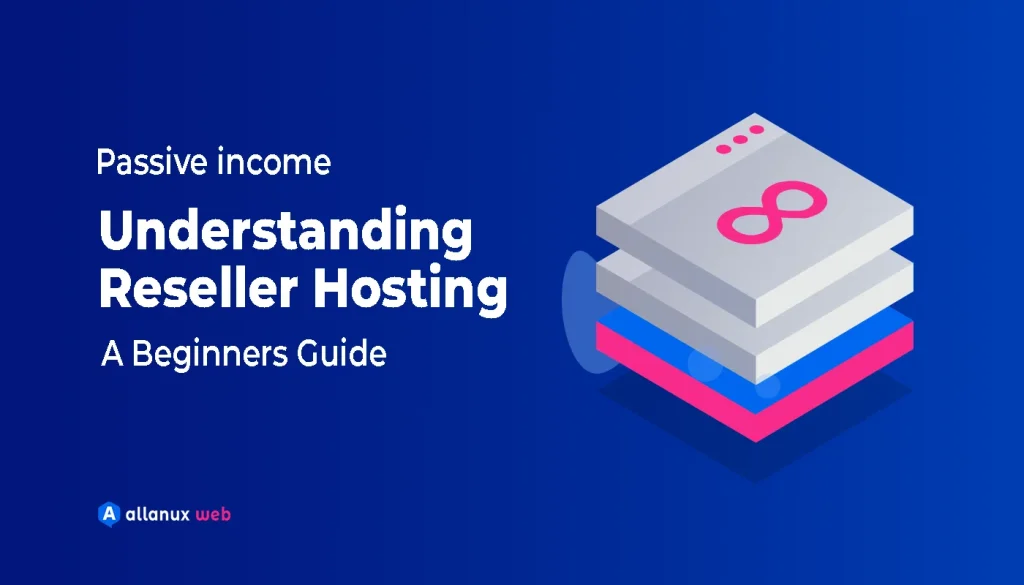Reseller hosting is a type of web hosting service that allows individuals or businesses to sell web hosting services to their own clients. In this comprehensive guide, we will explore the ins and outs of reseller hosting, including its benefits, how it works, how to choose the right provider, how to set up your own reseller hosting business, how to manage your clients and server, and common issues that may arise.
Definition of Reseller Hosting
Reseller hosting is a type of web hosting service that allows individuals or businesses to purchase web hosting services from a hosting provider and then resell those services to their own clients. This means that the reseller acts as a middleman between the hosting provider and the end user.
Benefits of Reseller Hosting
There are several benefits to reseller hosting, including:
- Additional revenue stream: Reselling web hosting services can provide an additional source of income for individuals or businesses.
- Custom branding: Resellers can brand the hosting services they offer with their own company name and logo.
- Flexibility: Resellers can choose the hosting plans and features they want to offer to their clients.
- No technical expertise required: Resellers do not need to have technical expertise in web hosting, as the hosting provider handles the technical aspects of the service.
How Reseller Hosting Works
Reseller hosting works by allowing the reseller to purchase hosting services from a hosting provider and then resell those services to their own clients. The hosting provider is responsible for maintaining the server and providing technical support, while the reseller is responsible for managing their own clients and providing support to them.
A. The Role of the Reseller
The reseller is responsible for managing their own clients, setting up accounts, providing support, and billing and invoicing. They are also responsible for marketing their own hosting services and attracting new clients.
B. The Role of the Hosting Provider
The hosting provider is responsible for maintaining the server, providing technical support, and ensuring that the server is running smoothly. They also provide the reseller with the hosting services that they will resell to their own clients.
C. The Role of the End User
The end user is the client of the reseller, and they are responsible for managing their own website and content. They receive hosting services from the reseller, who in turn receives those services from the hosting provider.
Choosing the Right Reseller Hosting Provider
Choosing the right reseller hosting provider is crucial to the success of your reseller hosting business. There are several factors to consider when choosing a provider, including:
1. Reliability and Uptime
The hosting provider should have a high level of reliability and uptime, as this will ensure that your clients’ websites are always accessible.
2. Scalability
The hosting provider should be able to scale their services as your business grows, so that you can accommodate more clients and offer more services.
3. Customer Support
The hosting provider should offer excellent customer support, so that you can provide the same level of support to your own clients.
4. Pricing
The pricing of the hosting services should be competitive, so that you can offer affordable hosting services to your own clients.
Setting Up Your Reseller Hosting Business
Once you have chosen a reseller hosting provider, you can begin setting up your own reseller hosting business. This involves creating a business plan, choosing a niche, setting up your website, and marketing your business.
Creating a Business Plan
Creating a business plan will help you define your goals, target market, and marketing strategy. It will also help you determine how much money you need to invest in your business.
Choosing a Niche
Choosing a niche will help you differentiate your hosting services from those of other resellers. You can choose a niche based on industry, location, or type of website.
Setting Up Your Website
Setting up your website involves choosing a domain name, designing your website, and setting up your billing and invoicing system.
Marketing Your Business
Marketing your business involves promoting your hosting services through social media, advertising, and other marketing channels.
Managing Your Reseller Hosting Business
Managing your reseller hosting business involves managing your clients and server. This includes setting up accounts, providing support, billing and invoicing, monitoring performance, updating software, and backing up data.
A. Managing Your Clients
Managing your clients involves setting up accounts, providing support, and billing and invoicing. You should also have a system in place for managing client complaints and resolving issues.
B. Managing Your Server
Managing your server involves monitoring performance, updating software, and backing up data. You should also have a system in place for handling server downtime and other technical issues.




